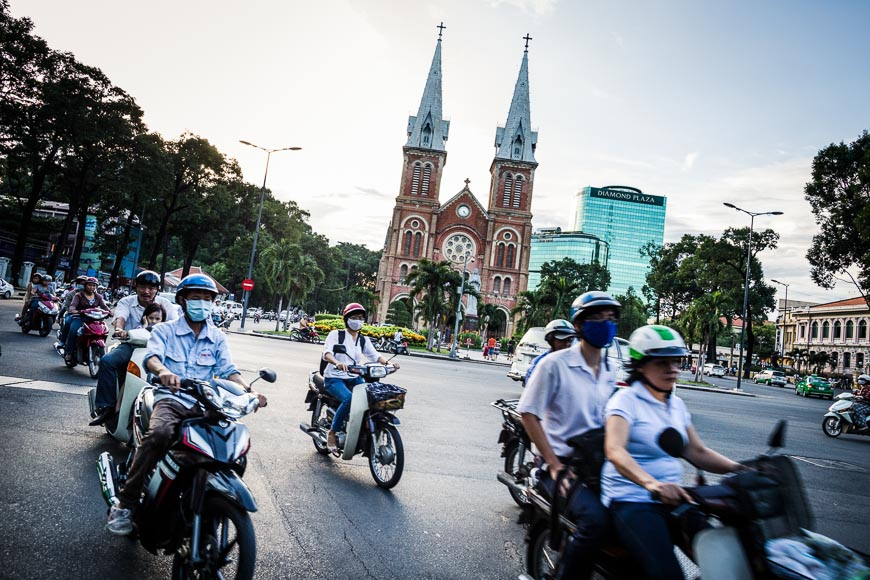
What are Vietnamese people like?
The Vietnamese way of life continues to be a fascinating mystery for many tourists. Confused by the nation's innumerable sidewalk cafes or the fact that citizens are permitted to ride their motorbikes for hours on end just for fun? It's not just you. Getting to know the Vietnamese is the only way to get an authentic Vietnamese experience. Continue reading to learn what it means to be a Vietnamese and why we are so unpredictable.
Living on a sidewalk
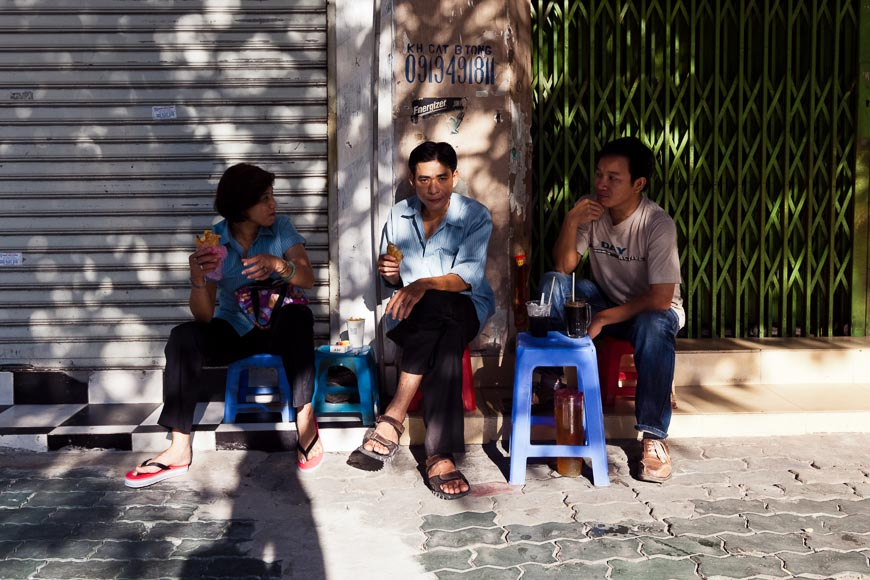 Living on a sidewalk
Living on a sidewalk
Vietnamese people frequently use sidewalks. It's easy to understand why we love to leave the house given the fantastic street food scene, café culture, and sidewalk tradition of the nation (which includes curbside barbers, marketplaces, and exercise classes). meeting with friends? towards the sidewalk. Want a haircut? towards the sidewalk. Purchasing food? You know where we are.
There are many public areas, which promotes a communal way of life. We share an outside space and are close by. Vietnamese people are not accustomed to the Western concepts of privacy or personal space. Your banh m vendor can inquire about your marital status and then insist on introducing you to someone. Be not alarmed. She's merely protecting you and welcoming you into our community.
Having grown up riding a bike
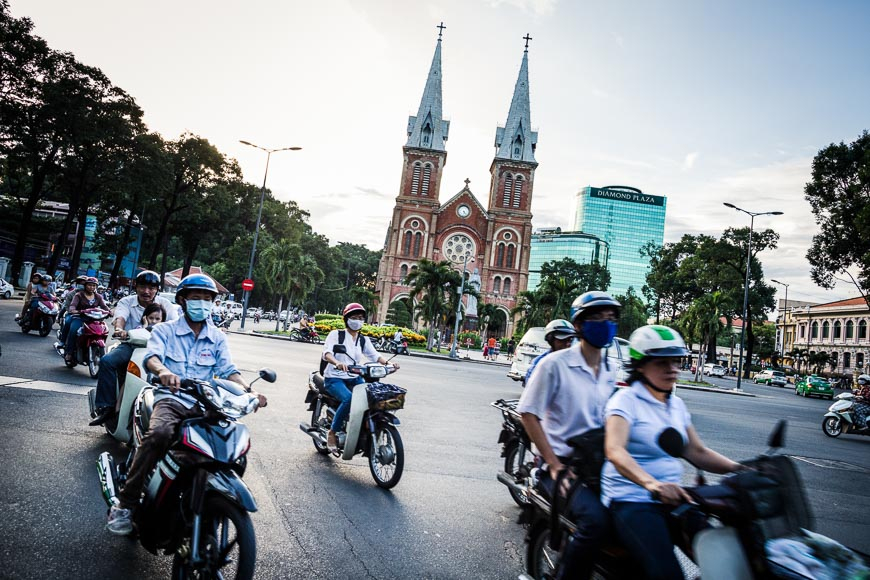 We usually ride our motorcycles when we're not sitting on plastic stools and catching up over a drip coffee. For us Vietnamese, a motorcycle serves more purposes than just getting around. Getting from point A to point B is not necessarily the goal of a ride. On a warm night, you'll find groups of friends, families, and couples going around on motorcycles to take advantage of the cool breeze, chat with one another, or people-watch while stopping sometimes for delectable food.
We usually ride our motorcycles when we're not sitting on plastic stools and catching up over a drip coffee. For us Vietnamese, a motorcycle serves more purposes than just getting around. Getting from point A to point B is not necessarily the goal of a ride. On a warm night, you'll find groups of friends, families, and couples going around on motorcycles to take advantage of the cool breeze, chat with one another, or people-watch while stopping sometimes for delectable food.
As a result of riding motorcycles as a child, many fond memories are associated with these two-wheelers. A Vietnamese person will always recall being seated between their parents on the way to school. First dates frequently begin with a pick-up on a motorcycle. Motorcycling with friends to the mountains, beaches, or countryside is what is meant by a "pht road trip." So accept the offer of a ride on a local's motorcycle. That is an opportunity to experience Vietnamese culture that you shouldn't pass up.
Avoiding the sun
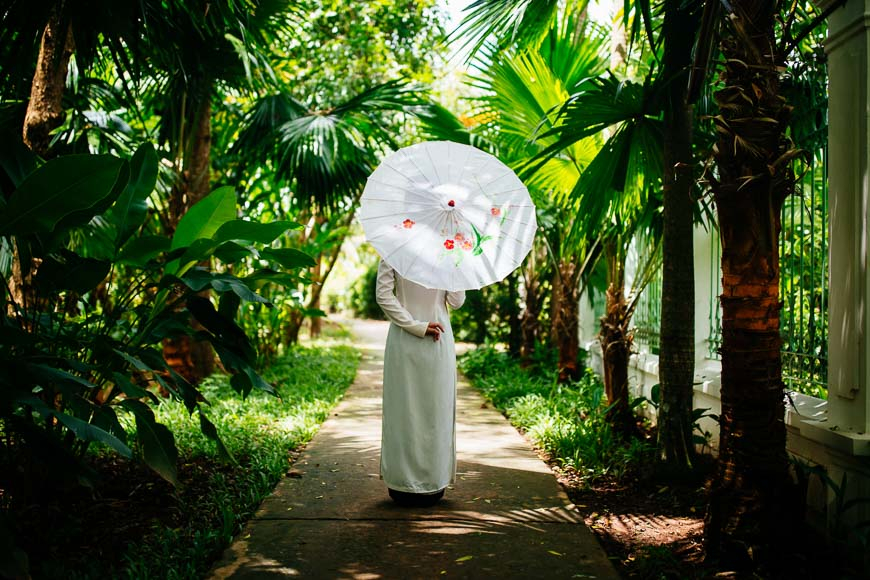 We cover up while the sun is out since the majority of Vietnamese prefer having fairer skin. Given that some coastal communities see up to 300 days of sunshine annually, it is understandable why we could take it for granted. We find that a bright day is better spent inside or in the shade. Sunless tanners beside the pool? We'll decline, thank you.
We cover up while the sun is out since the majority of Vietnamese prefer having fairer skin. Given that some coastal communities see up to 300 days of sunshine annually, it is understandable why we could take it for granted. We find that a bright day is better spent inside or in the shade. Sunless tanners beside the pool? We'll decline, thank you.
Long sleeves, gloves, masks, sun hats, and whatever else you can think of are worn by Vietnamese women as sun protection. When riding a motorcycle, the lower body is covered with a "anti-sun skirt" that is a piece of fabric wrapped around the waist. This explains why the beaches in Vietnam are mainly deserted during the day yet crowded in the morning or late in the afternoon.
Giving is (food) sharing
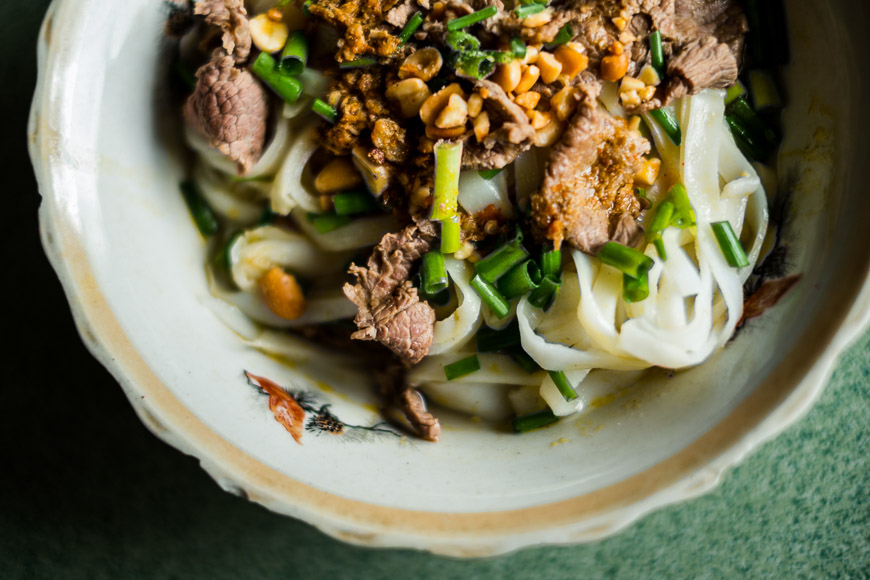 Our culture places a lot of importance on the way we share food. Family-style meals are frequently consumed with everything on the table so that everyone can dig in. If visitors arrive around dinnertime, they are requested to stay for a meal, and the host will fill their bowl with food of their choosing. We constantly say, "It's merely a second bowl and some chopsticks."
Our culture places a lot of importance on the way we share food. Family-style meals are frequently consumed with everything on the table so that everyone can dig in. If visitors arrive around dinnertime, they are requested to stay for a meal, and the host will fill their bowl with food of their choosing. We constantly say, "It's merely a second bowl and some chopsticks."
When it comes to showing affection, Vietnamese people are not the most overt. We avoid saying "I love you," so we turn to food as a substitute. Every other week, students who attend schools far from home receive care packages containing meals made by their mothers and grandmothers. One of the most overused flirtatious texts sent by young people all around the nation is "Em ăn cm châ?" meaning "Have you eaten rice yet?"
Benefits of growing older
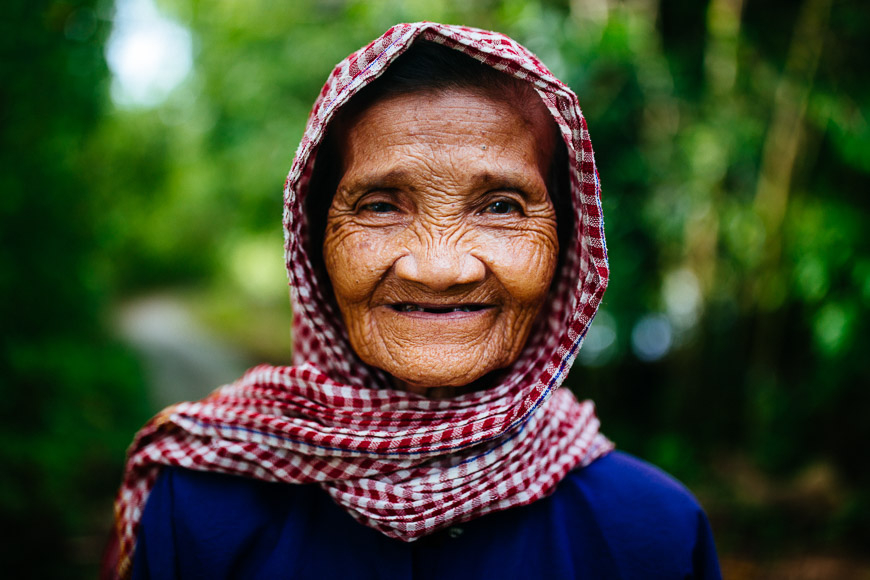 In Vietnam, getting older has many benefits. Being older is viewed as wiser. The highest positions in the family are held by grandparents, parents, and elder siblings, and distinct pronouns are used to refer to people who are younger or older. The Vietnamese word l phép, which essentially translates as politeness or manners, actually refers to showing older people respect, courtesy, and even compliance.
In Vietnam, getting older has many benefits. Being older is viewed as wiser. The highest positions in the family are held by grandparents, parents, and elder siblings, and distinct pronouns are used to refer to people who are younger or older. The Vietnamese word l phép, which essentially translates as politeness or manners, actually refers to showing older people respect, courtesy, and even compliance.
TIP: If a Vietnamese person asks you for your age at first contact, don't take it personally; we just want to be lễ phép where lễ phép is due.
On certain occasions like death anniversaries, T't (Lunar New Year), and Ghost Festival, food is typically served at the ancestral altar found in the majority of Vietnamese homes. Even when someone passes away, respect for the elderly continues, especially for family members. Before beginning our own meal, we watch for the incense to burn out (a indication that our forefathers have done eating). Even then, the dinner only officially starts until the senior citizen takes the first mouthful.
Rhymes for running
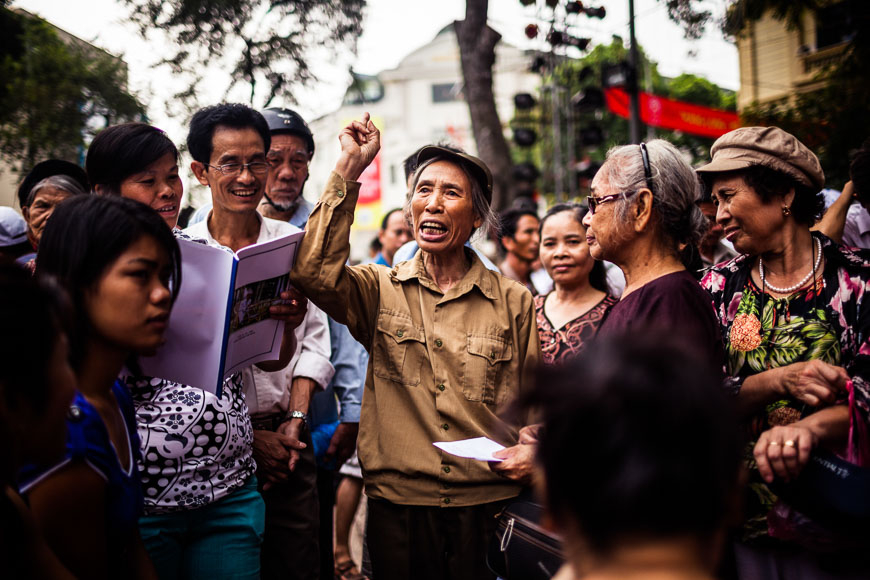 In Vietnamese literature, rhymes are used in a variety of contexts. No matter their age, we adore them. Most of our idioms, proverbs, and even jokes, as well as our poetic genres, significantly rely on rhymes. In addition to writing rhyming couplets for public campaigns, schools and government agencies also use amusing poetry to promote their causes. Poems can be written by any Vietnamese. A poem about everyday life written by a commoner is referred to as a "toad poetry" (thơ con cóc). Anything, no matter how banal, can be the topic. For instance:
In Vietnamese literature, rhymes are used in a variety of contexts. No matter their age, we adore them. Most of our idioms, proverbs, and even jokes, as well as our poetic genres, significantly rely on rhymes. In addition to writing rhyming couplets for public campaigns, schools and government agencies also use amusing poetry to promote their causes. Poems can be written by any Vietnamese. A poem about everyday life written by a commoner is referred to as a "toad poetry" (thơ con cóc). Anything, no matter how banal, can be the topic. For instance:
Trời buồn trời đổ cơn mưa,
Ta buồn ta ngủ từ trưa tới chiều.
The sky's sad, it starts to pour,
I’m also sad, I sleep and then sleep some more.
Satirical toad poems are especially common when they are about love.
Muốn ngủ ngon thì đừng lấy vợ,
Muốn không nợ thì đừng có yêu.
For a good night's sleep, marry no wife,
For a debt-free life, don't fall in love.
Tenacious and tenable
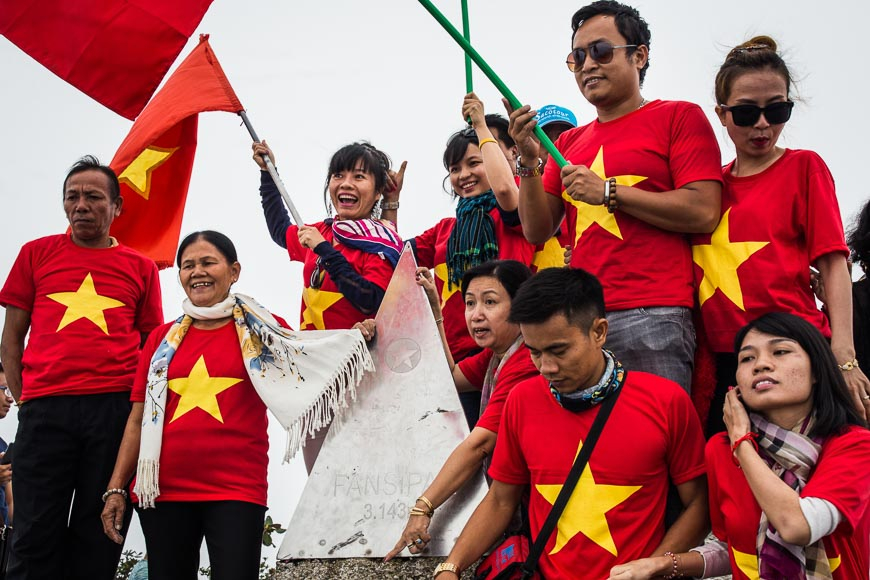 Despite our peculiar customs and poetic humor, the tenacity of every Vietnamese is something that unites us. Even though Vietnam has seen its share of hardships, we persist. We seem to be adept at recovering from hardship. Vietnam is currently ranked as one of the most inspirational travel destinations in the world, thanks in large part to its magnificent scenery, fascinating history, and world-class tourism offerings, as well as the fascinating tales of its inhabitants. A loser who simply won't give up and emerges more stronger? That is something to which we can all relate.
Despite our peculiar customs and poetic humor, the tenacity of every Vietnamese is something that unites us. Even though Vietnam has seen its share of hardships, we persist. We seem to be adept at recovering from hardship. Vietnam is currently ranked as one of the most inspirational travel destinations in the world, thanks in large part to its magnificent scenery, fascinating history, and world-class tourism offerings, as well as the fascinating tales of its inhabitants. A loser who simply won't give up and emerges more stronger? That is something to which we can all relate.